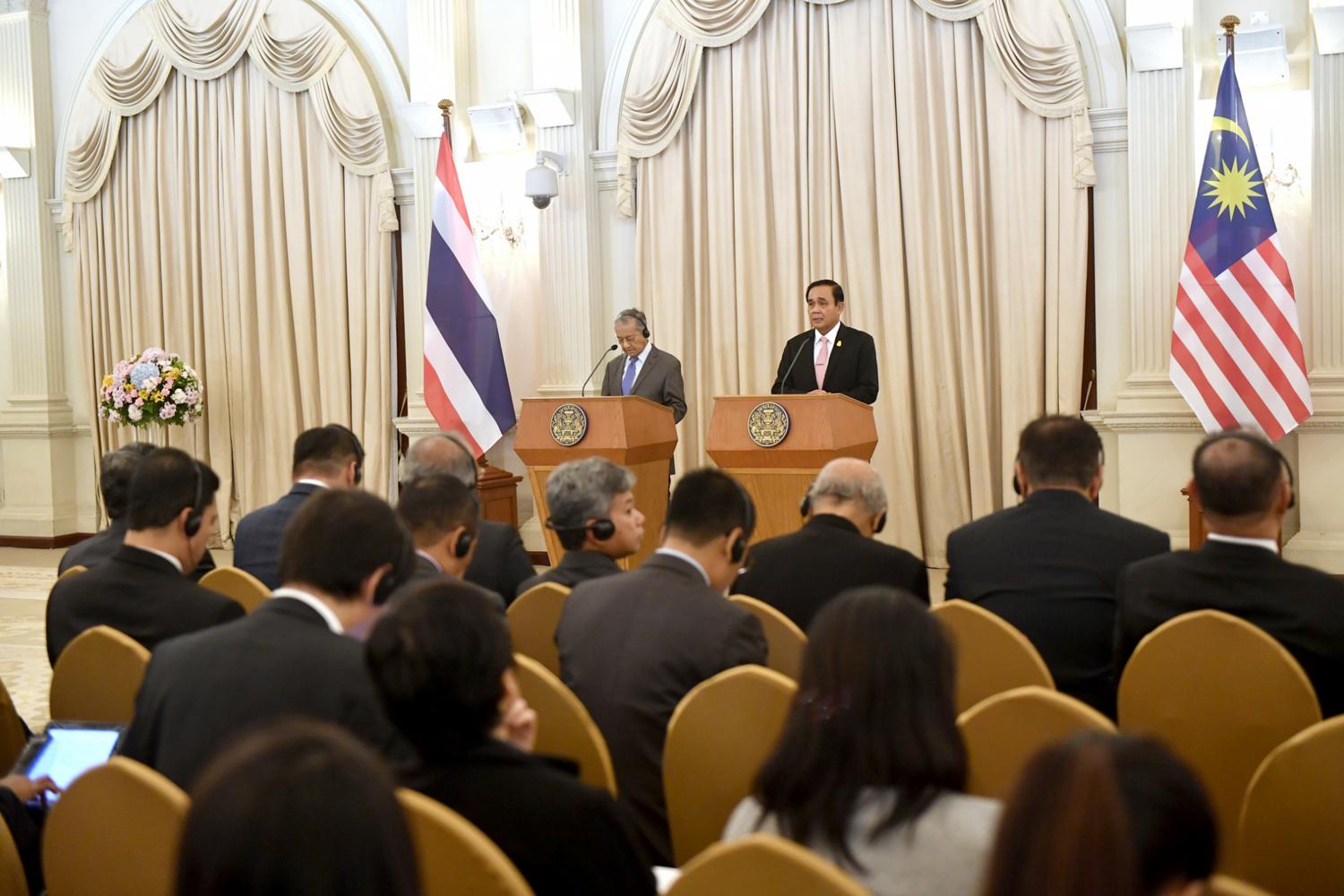
This week marks one full year since Malaysian Prime Minister Mahathir Mohammad's much publicised visit to Thailand. During the landmark trip, he said that Malaysia under his leadership would do "whatever was possible" to achieve peace in southern Thailand. His comment gave a strong sense of deja vu to the government of Prime Minister Prayut Chan-o-cha that permanent peace and stability at the southern tip was close at hand.
Coming from Dr M, as he is known locally, the Thai establishment was confident that the ongoing peace process with the conflicting parties, comprising various insurgent groups, across the border would proceed with tangible results. After all, the prime minister is a man of his word. However, over the past year, Bangkok's goodwill and hope has largely evaporated, as Kuala Lumpur has yet to turn promises into actions, much to the disappointment of those who trusted Dr M's pledges.
Last September, Thailand was elated and welcomed Dr M's move to install Tan Sri Abdul Rahim Noor as head of the Malaysian mediating team. Mr Rahim is no stranger in Thailand. He was a well-known figure who worked closely with Thai authorities to disarm the Communist Party of Malaya in the late 1980s. However, at this juncture, the lack of progress over the peace process was a barometer of the difficulties that Mr Rahim has encountered in engaging both moderate and hardcore elements of the Barisan Revolusi Nasional (BRN). It is an open secret that insurgents active in southern Thailand have safe sanctuaries across the border, which remain a huge blind spot in Thai-Malaysian relations.
At this juncture, the Thai side still hopes that the Malaysian facilitator will be able to persuade the BRN to engage in the peace process without coercion. Truth be told, these hopes are not very high, as the Kuala Lumpur government has not given top priority to Thailand's southern provinces. Currently, the ruling coalition government under Dr M is fighting to win back public support after public opinion polls showed the party continues to lose popularity after nearly two years in power. But to show that Kuala Lumpur is committed to the peace process, Mr Rahim's term has been extended recently by another year.
For decades, Thailand has tolerated illegal cross-border activities due to a lack of consistent law enforcement and cooperation among authorities on both sides. However, of late, Thailand's patience has run thin because of the recent blatant acts by young elements identified by the Thai authorities as belonging to the BRN. A series of bombs exploded on the second and third days of Asean's annual meeting on Aug 2 and 3 in various parts of Bangkok.
Following weeks of police investigation, two suspects who had links with insurgent groups were arrested and charged with the bombings. According to an intelligence source, who asked not to be identified, another 20 accomplices in the attacks escaped across the southern border. The source also pointed out that once they were inside Malaysia, these collaborators live freely, ignoring Bangkok's repeated requests for them to be extradited. Naturally, the Thai government has been quite concerned about the security situation at the upcoming Asean-related summits, which will involve the world's most powerful leaders. They will converge in Bangkok from Nov 2-4. Any similar attempt bombing attacks must be prevented.
Under these murky conditions, Thai army chief Gen Apirat Kongsompong decided to suspend the upcoming 29th annual Thai-Malaysian joint military exercise along the 647-kilometre common border. The Thai army wants to send a strong signal that Malaysia has not yet done what it can.
Furthermore, Kuala Lumpur has not shown sincerity and goodwill in conducting the annual joint patrol of the border areas. Time and again, the Malaysian side has refused without sufficient reason to conduct joint patrols in border areas identified and requested by the Thai side. Doubtless, Thai officials have often lamented the true intentions of their counterparts across the border, especially those veterans working inside the police Special Branch.
The crisis in the southern provinces remains Gen Prayut's top priority, as he wants to leave a legacy of being a peacemaker there, having invested greatly in financial resources and manpower to inject new confidence in the local communities. Now the prime minister is hoping that the new Thai chief peace negotiator, Gen Wallop Laksanoh, former chief of the National Security Council (NSC), would be able to make progress in the short and medium term. The NSC is planning to hold a strategic meeting on Oct 30 in Pattani with the participation of all 55 agencies charged with handling security in southern Thailand. The meeting will be presided over by Deputy Prime Minister Gen Prawit Wongsuwon.
In the past five years, Thailand has generally improved border security with Laos, Cambodia and Myanmar, which used to be plagued with insurgent activities. These days, the security cooperation with these three countries has been excellent. At this juncture, all border areas, except for the three southern provinces, have better border management. Frequent dialogue among defence chiefs at the national level and among regional military commanders has done much to increase the comfort level and enable Thailand and these neighbours to strengthen ties and promote border security, cooperation and trade. Although Thailand and Malaysia were founding members of Asean, security talks among their top army brass are still minimal. Border security and management still have a lot of room for improvement.
Thai and Malaysian relations are still plagued by a trust deficit. The Thai side remains enthusiastic about pursuing peace talks. However, despite repeated promises, the other concerned parties are not so sanguine.
Ironically, the peace process down south continues to be held hostage by domestic politics in Malaysia. Thailand hopes Malaysia will fulfil its longstanding promise to help resolve the southern problem. Without continued and comprehensive cooperation from the Malaysian facilitator, peace in southern Thailand will remain elusive.
